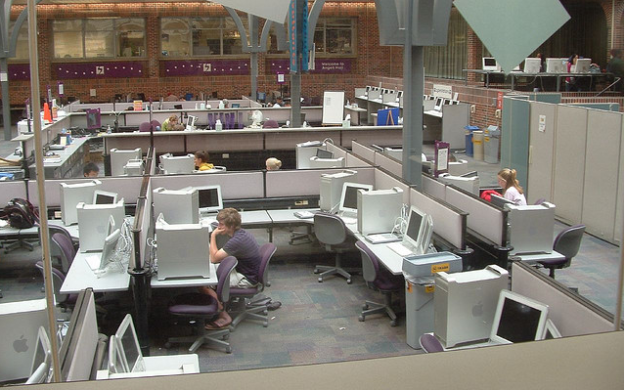 A group of U.S. universities has banded together in an effort to bring ultra high-speed broadband access to their respective surrounding communities. The project is called Gig.U, is 29 Universities strong and aims to provide speeds of up to 1Gbps to researchers as well as residents in the vicinity of these higher learning hubs.
A group of U.S. universities has banded together in an effort to bring ultra high-speed broadband access to their respective surrounding communities. The project is called Gig.U, is 29 Universities strong and aims to provide speeds of up to 1Gbps to researchers as well as residents in the vicinity of these higher learning hubs.
The plan, announced Wednesday, is to draw high-tech start-ups to these university areas. The target sectors are energy, telecommunications and health care. Gig.U is in its early stages so the first action will be to quiz the big doers in the telecommunications industry on how to attract these start-ups, then the group will solicit business proposals for building the networks.
With a 1Gbps network connection, capable of downloading an HD movie in no time, the group hopes that they will create an “ecosystem” of new companies and ideas, feeding on each other and in turn growing. These hubs would continually improve the networks once put in place. The idea is that the investment will revitalize U.S. networks (we’re rank 30 in the world for broadband availability) and make the country more competitive globally.
Fellow at the Aspen Institute and head of the project Blair Levin said, “It’s the difference between seeing it as a race-to-a-tape versus creating a constantly evolving ecosystem that is improving our networks.
The New York Times points out that the Gig.U project has a majority of members from the heartland such as Missouri, Montana and West Virginia. The midsize communities in these areas would be impacted greatly by the ultra high-speed broadband.
Some of the institutions that are participating in Gig.U include Duke University, Arizona State, the University of Michigan, the University of Washington, the University of Chicago, George Mason and Case Western Reserve University. A pilot program was set up last year by Case Western which drew in three start-ups within three months of the program’s inception.


